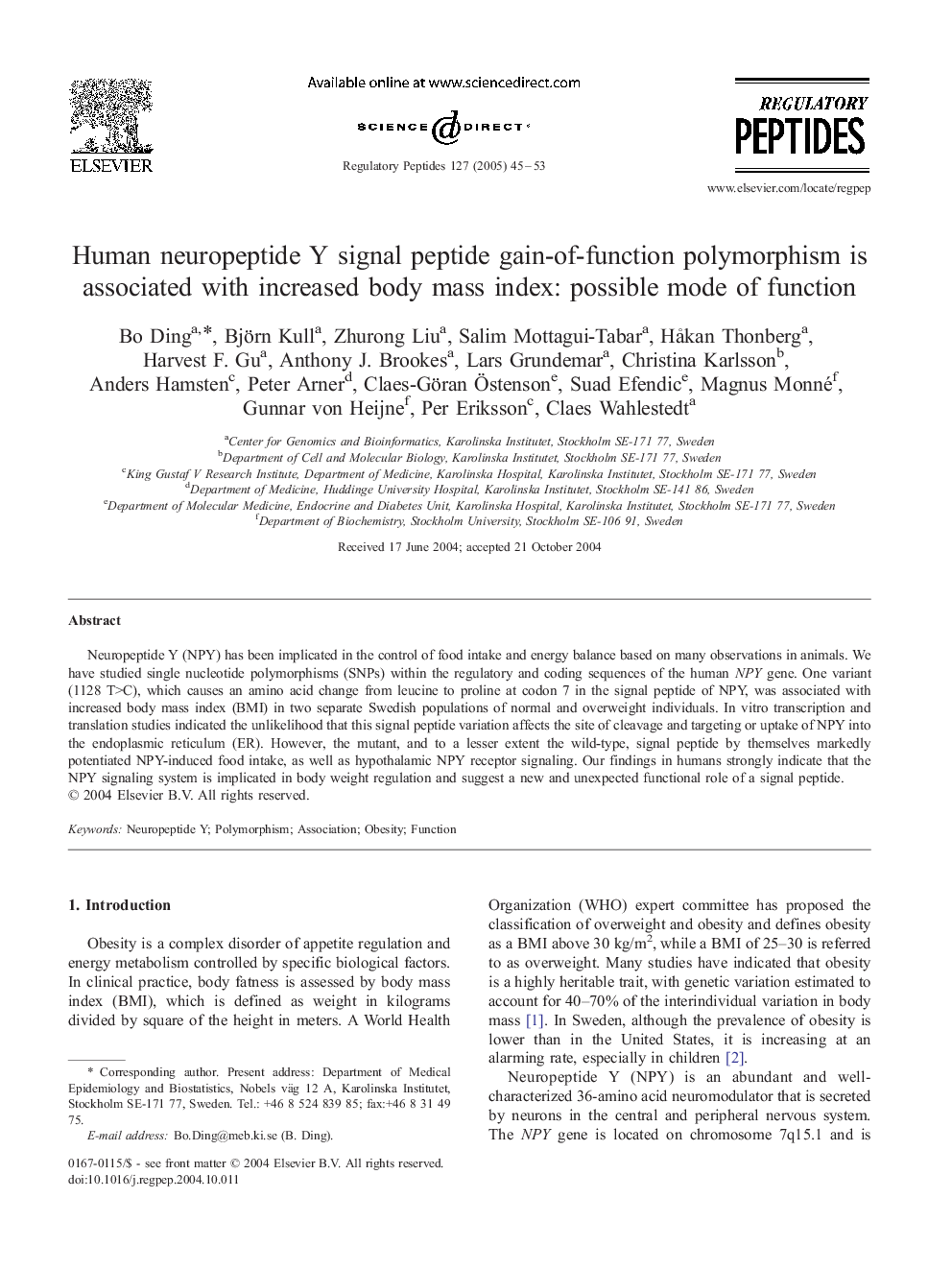| کد مقاله | کد نشریه | سال انتشار | مقاله انگلیسی | نسخه تمام متن |
|---|---|---|---|---|
| 9894440 | 1542459 | 2005 | 9 صفحه PDF | دانلود رایگان |
عنوان انگلیسی مقاله ISI
Human neuropeptide Y signal peptide gain-of-function polymorphism is associated with increased body mass index: possible mode of function
دانلود مقاله + سفارش ترجمه
دانلود مقاله ISI انگلیسی
رایگان برای ایرانیان
کلمات کلیدی
موضوعات مرتبط
علوم زیستی و بیوفناوری
بیوشیمی، ژنتیک و زیست شناسی مولکولی
زیست شیمی
پیش نمایش صفحه اول مقاله

چکیده انگلیسی
Neuropeptide Y (NPY) has been implicated in the control of food intake and energy balance based on many observations in animals. We have studied single nucleotide polymorphisms (SNPs) within the regulatory and coding sequences of the human NPY gene. One variant (1128 T>C), which causes an amino acid change from leucine to proline at codon 7 in the signal peptide of NPY, was associated with increased body mass index (BMI) in two separate Swedish populations of normal and overweight individuals. In vitro transcription and translation studies indicated the unlikelihood that this signal peptide variation affects the site of cleavage and targeting or uptake of NPY into the endoplasmic reticulum (ER). However, the mutant, and to a lesser extent the wild-type, signal peptide by themselves markedly potentiated NPY-induced food intake, as well as hypothalamic NPY receptor signaling. Our findings in humans strongly indicate that the NPY signaling system is implicated in body weight regulation and suggest a new and unexpected functional role of a signal peptide.
ناشر
Database: Elsevier - ScienceDirect (ساینس دایرکت)
Journal: Regulatory Peptides - Volume 127, Issues 1â3, 15 April 2005, Pages 45-53
Journal: Regulatory Peptides - Volume 127, Issues 1â3, 15 April 2005, Pages 45-53
نویسندگان
Bo Ding, Björn Kull, Zhurong Liu, Salim Mottagui-Tabar, HÃ¥kan Thonberg, Harvest F. Gu, Anthony J. Brookes, Lars Grundemar, Christina Karlsson, Anders Hamsten, Peter Arner, Claes-Göran Ãstenson, Suad Efendic, Magnus Monné, Gunnar von Heijne,